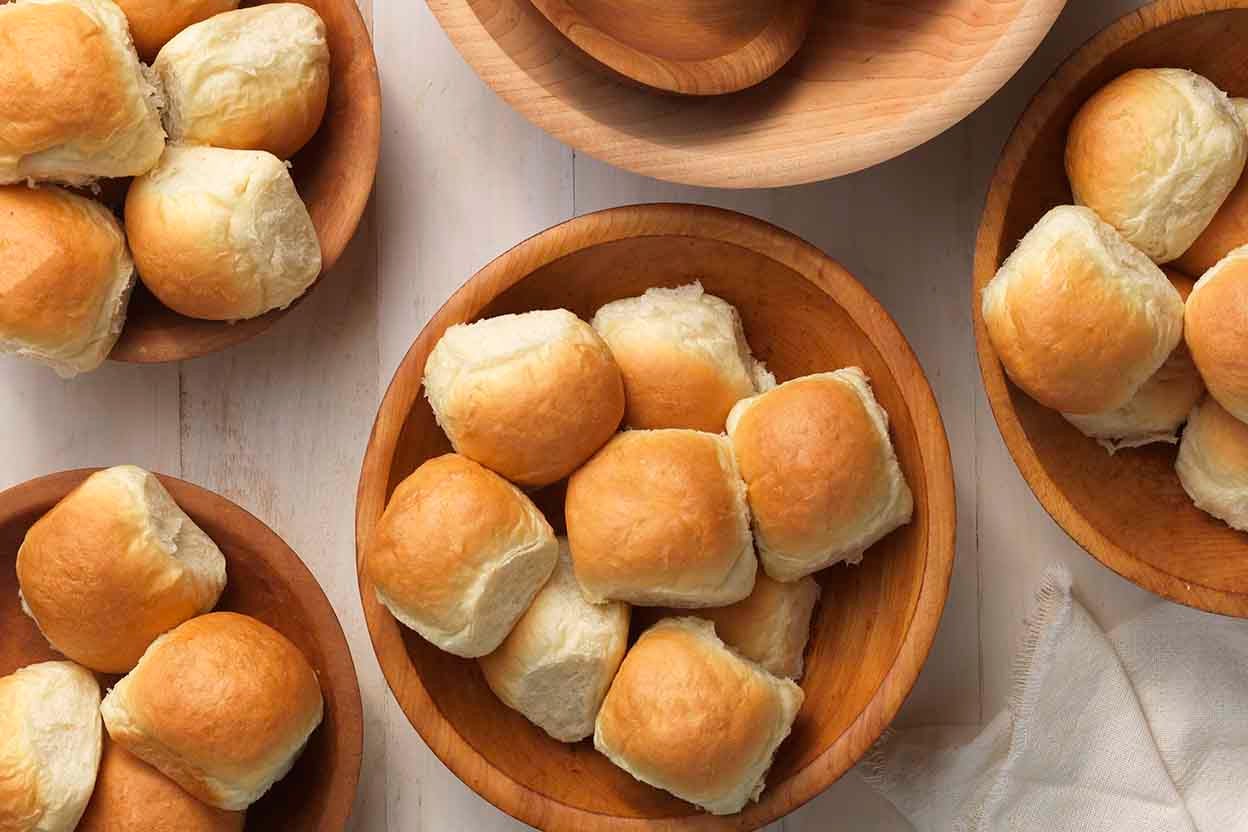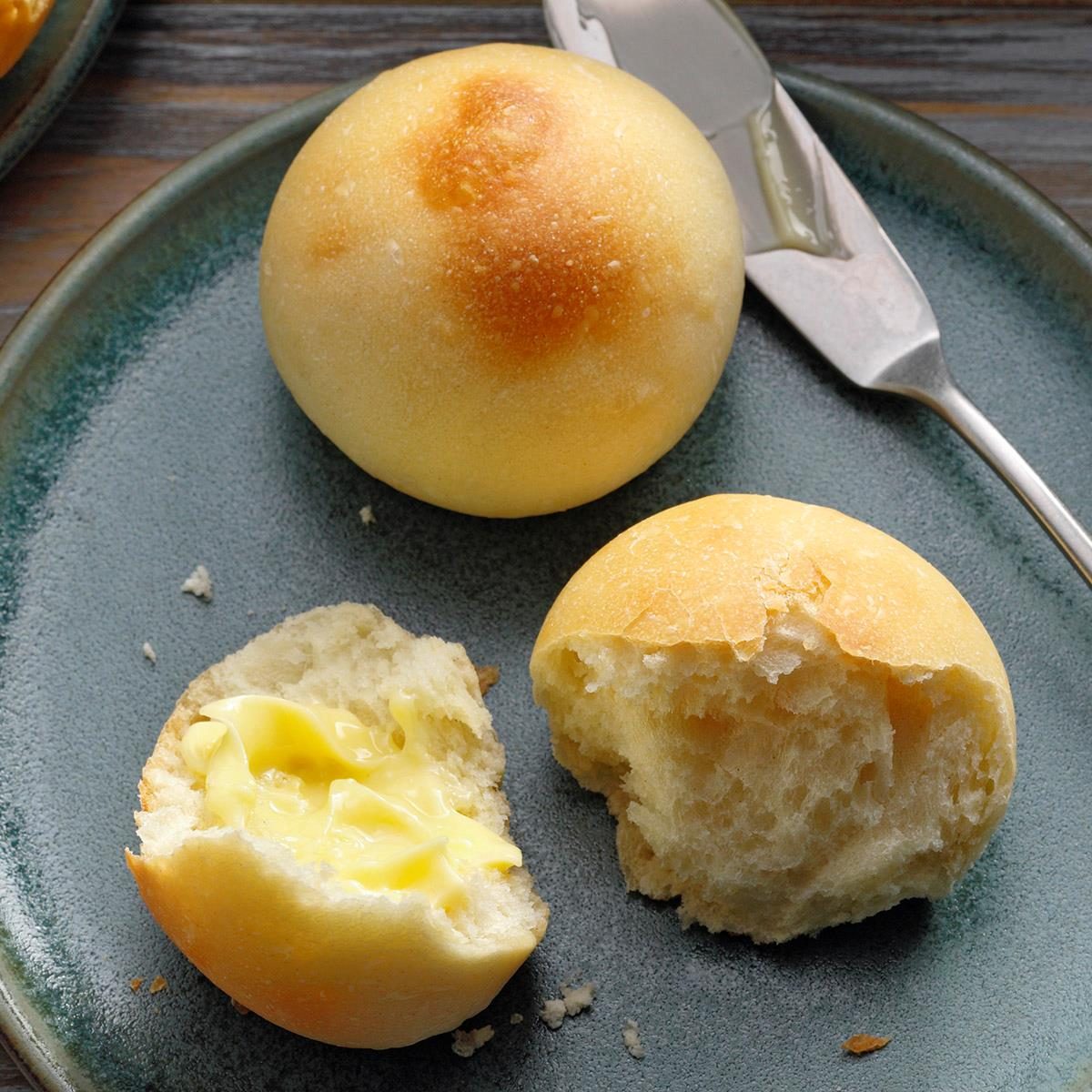Yeast roll
bread roll
A bread roll is a small, oblong individual loaf of bread served as a meal accompaniment . Rolls can be served and eaten whole or are also commonly cut and filled – the result of doing so is considered a sandwich in English. Rolls are common throughout Europe. Even in the same languages, rolls are known by a variety of names. Some European languages have many local and dialectal terms for bread rolls. These include German language diminutives of Brot (bread) in most of western and central Germany (where they are called Brötchen) and in Switzerland (where they are called Brötli). Other German language terms include Rundstück ("round piece") in Hamburg and Schleswig-Holstein; Weckerl or more specific Semmel in Austria, Saxony and southern Bavaria; Weck and Weckle in much of Baden-Württemberg, Franconia and Saarland; Schrippe in Berlin and parts of Brandenburg. Some of these names reappear in other European languages as well, for example as zsemle in Hungarian, or rundstykker ("round pieces") in Danish and Norwegian. In the Netherlands they are called broodje.[citation needed] "Small bread" is also found as Italian panino, which also commonly denotes a stuffed small bread roll. The Kaisersemmel reappears in Italy as the Michetta or Rosetta. In Swedish, a bread roll is a (frukost) bullar ("(breakfast) buns"), franskbrödbullar ("french bread bun") or simply fralla ("bun"), comfort food eaten with butter and any kind of topping (marmalade, cheese, ham, salami) for special weekend breakfasts. The Doppelweck or Doppelbrötchen is a type of bread roll originating from the Saarland which consists of two rolls joined together side-by-side before baking.[citation needed]
Source: Wikipedia



:max_bytes(150000):strip_icc()/southern-style-butter-yeast-rolls-3062319-hero-01-c735a9e439bc429389787a27b58e8b5d.jpg)
:max_bytes(150000):strip_icc()/13827-quick-yeast-rolls-ddmfs-2x1-beauty-d0b88308e02a413b9c8706cef34e4b59.jpg)


